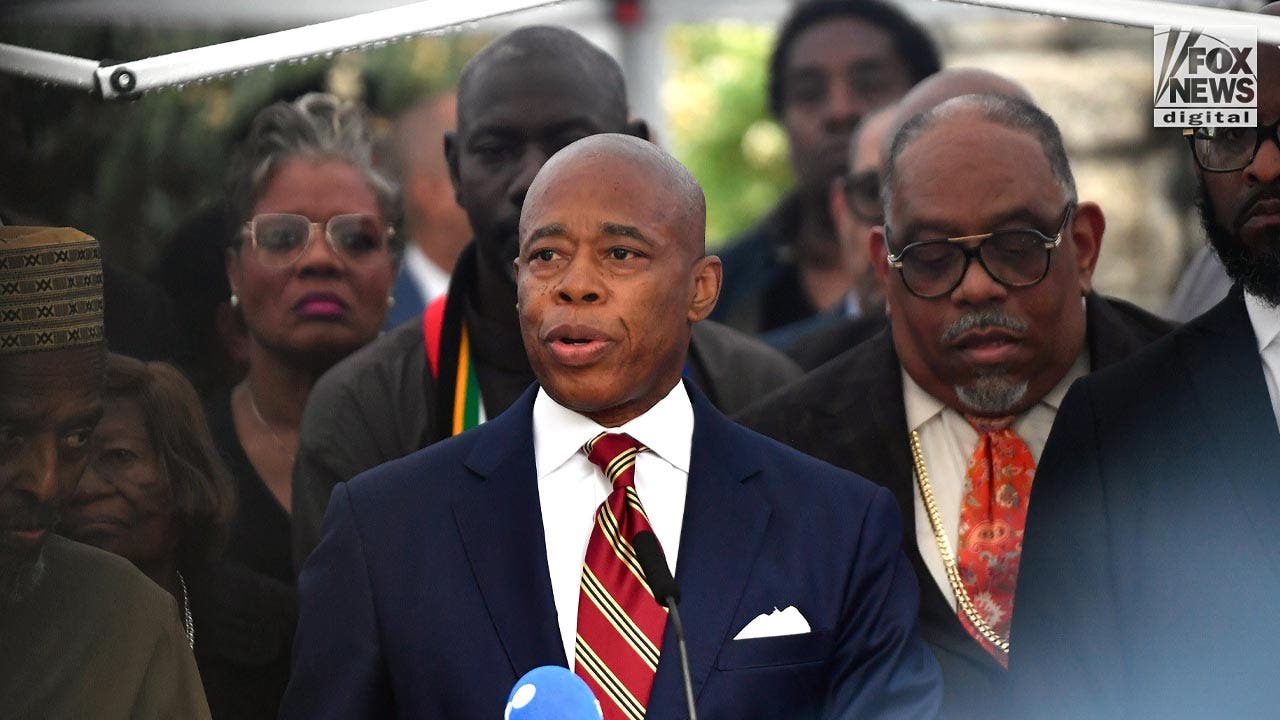Politics
Justice Department moves to drop case against NYC Mayor Eric Adams

Federal Prosecutors Move to Drop Case Against NYC Mayor Eric Adams, Citing Prosecutorial Concerns
In a dramatic turn of events, federal prosecutors requested a judge on Friday to dismiss the Justice Department’s case against New York City Mayor Eric Adams, following the resignation of several prosecutors who refused to proceed with the charges. The decision comes amid growing tensions within the Department of Justice (DOJ) over the handling of the case, with critics alleging that political motivations may have played a role in the investigation. The case against Adams, a high-profile Democratic mayor, has been a subject of intense scrutiny, and its sudden dismissal has raised questions about the integrity of the prosecutorial process.
Prosecutor’s Scathing Resignation Letter Highlights Concerns Over DOJ’s Handling of the Case
The developments were further complicated by the resignation of federal prosecutor Hagan Scotten, who stepped down on Friday in a sharply worded letter addressed to Acting U.S. Deputy Attorney General Emil Bove. In his letter, Scotten criticized top DOJ officials, accusing them of seeking a "fool" who would carry out a prosecution that he believed was unjust and politically driven. Scotten argued that the decision to indict Adams was inconsistent with the principles of prosecutorial independence and the rule of law. "Any assistant U.S. attorney would know that our laws and traditions do not allow using prosecutorial power to influence other citizens, much less elected officials, in this way," Scotten wrote, emphasizing the impropriety of such actions.
Mayor Adams Denies Any Deal to Drop the Charges, Insisting on His Innocence
In response to the news of the case being dropped, Mayor Adams issued a statement denying any involvement in a deal to resolve the charges. "I want to be crystal clear with New Yorkers: I never offered—nor did anyone offer on my behalf—any trade of my authority as your mayor for an end to my case. Never," Adams said, reinforcing his commitment to transparency and accountability. His statement sought to reassure the public that he had not engaged in any improper conduct to secure favorable treatment from federal authorities.
U.S. Attorney General Pam Bondi’s Office Defends the Decision as a Return to Core DOJ Functions
The decision to dismiss the indictment against Adams was defended by the U.S. Attorney General’s office, with Chief of Staff Chad Mizelle framing it as a necessary step to restore the DOJ’s focus on its core mission. Mizelle characterized the case as a "politically motivated witch hunt" and criticized the prosecutors involved for their refusal to follow orders. "The fact that those who indicted and prosecuted the case refused to follow a direct command is further proof of the disordered and ulterior motives of the prosecutors. Such individuals have no place at DOJ," Mizelle said in a statement released on Friday. The statement underscored the broader tensions within the DOJ over the appropriate role of prosecutors in high-profile cases.
A Federal Judge Must Still Approve the Dismissal of the Case
While the request to drop the case marks a significant development, the legal process is not yet complete. A federal judge must still review and approve the dismissal before the charges against Adams can be formally dropped. This step is a standard part of the legal procedure, ensuring that the decision to terminate a case is made in accordance with judicial oversight. The outcome of this review will ultimately determine whether the matter is fully resolved or if any further legal challenges arise.
The Broader Implications of the Case Highlight Tensions Between Politics and Prosecution
The dismissal of the case against Mayor Adams has sparked a broader debate about the role of politics in prosecutorial decision-making. The resignation of prosecutors like Hagan Scotten and the sharp exchange of statements between DOJ officials and Adams’ camp underscore the deepening divide over how federal authorities should handle cases involving elected officials. Critics argue that political considerations should never influence prosecutorial decisions, while others contend that the DOJ must ensure that its actions are free from even the appearance of impropriety. As the case against Adams reaches its conclusion, these questions are likely to remain a focal point of discussion in legal and political circles, raising important questions about the independence of the judiciary and the integrity of the justice system.


















